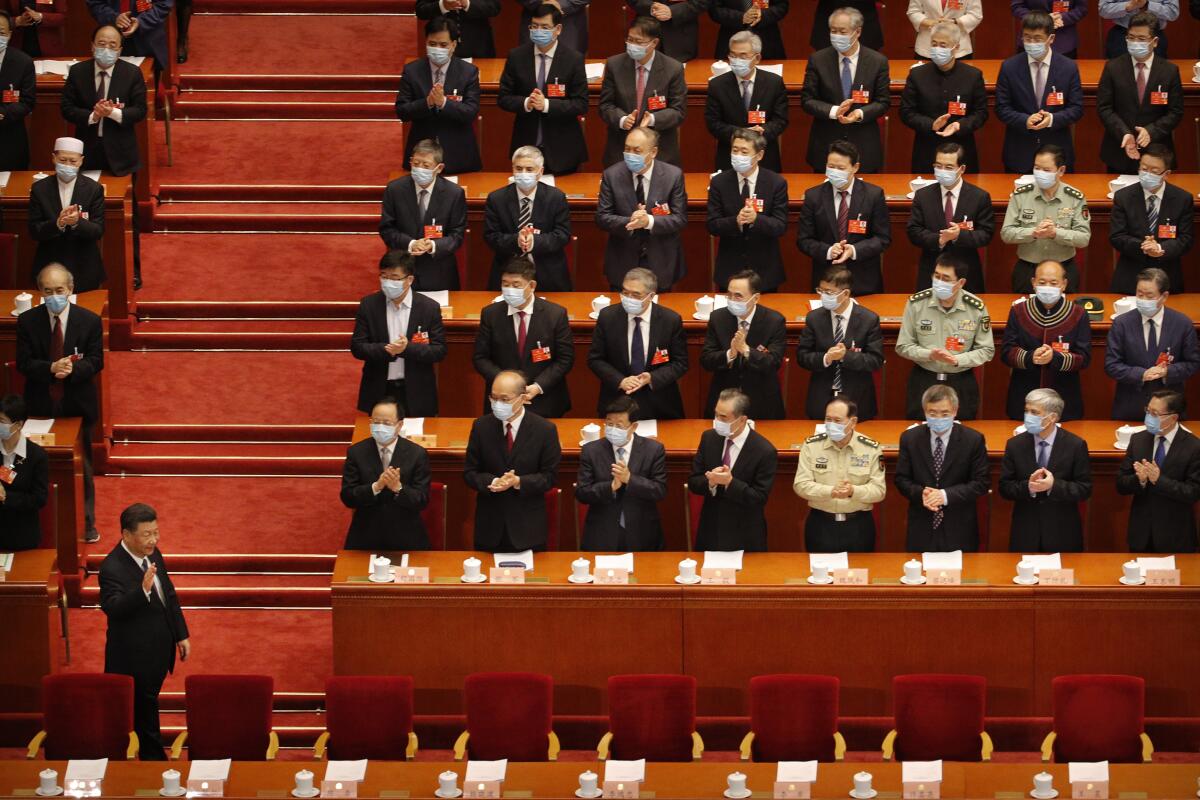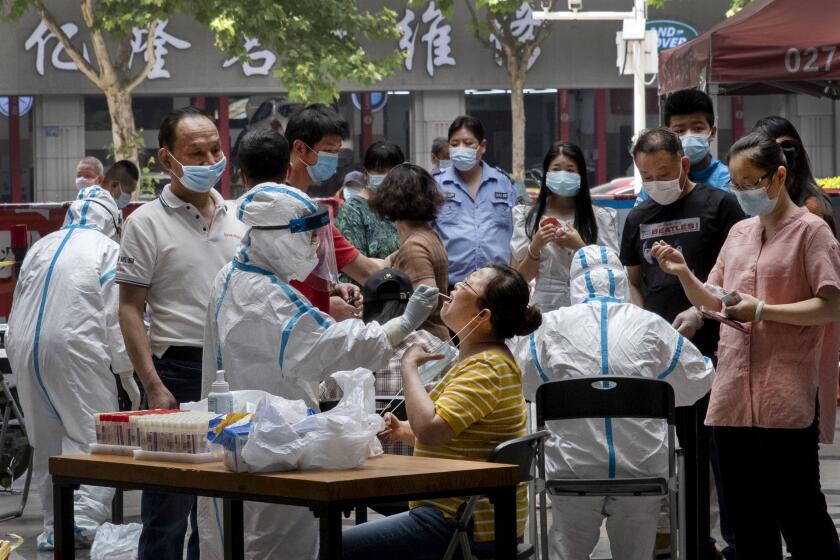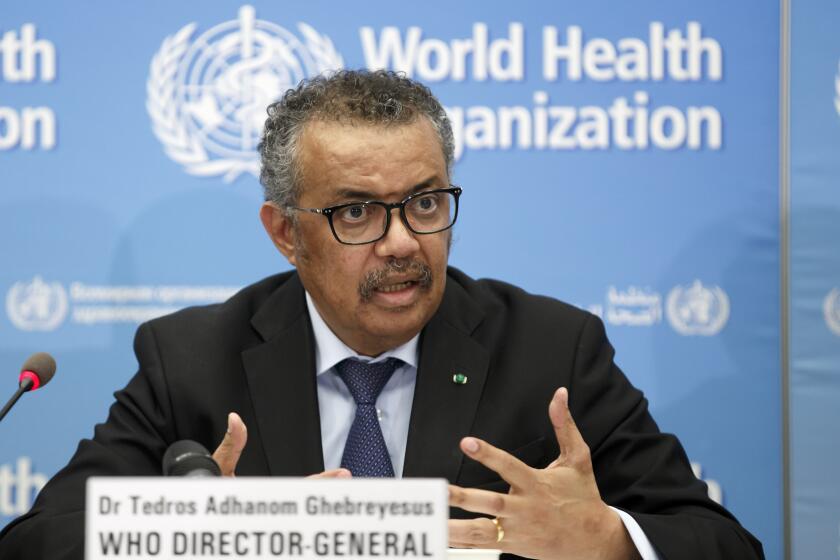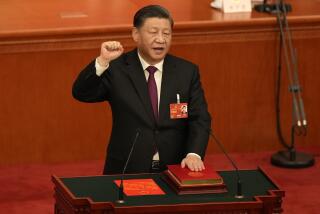China kicks off key political event delayed by pandemic

- Share via
BEIJING — China began its most important political event of the year Thursday after a two-month delay because of the COVID-19 pandemic.
The opening of the annual session of the Chinese People’s Political Consultative Conference is a further sign of what the government says is its victory over the coronavirus outbreak that originated in the central city of Wuhan late last year.
Conference members would “tell the world about how China, as a responsible major country, has taken firm action and contributed to international cooperation in the fight against the COVID-19 epidemic,” Chair Wang Yang said in his report to more than 2,000 delegates in attendance.
Rank-and-file members who assembled in the vast auditorium inside the Great Hall of the People in the heart of Beijing wore masks. Other top officials, including Wang and President Xi Jinping, did not.
The session will be followed Friday by the opening of the National People’s Congress, the ceremonial parliament. Premier Li Keqiang is to deliver a keynote speech outlining economic and social goals for the year.
It remains unclear whether Li will issue the usual gross domestic product growth target for the world’s second-largest economy. Given the economic devastation caused by the pandemic, the targeted GDP will likely be considerably lower than last year’s 6% to 6.5%.
One month after the city of Wuhan, China, celebrated its reopening, new COVID-19 infections emerge.
Tens of millions of Chinese have been thrown out of work, and it’s unclear how many jobs will return after the crisis passes. Not only have domestic production and demand been hammered, but China’s key export markets such as the United States and Europe have also suffered massive job losses and drops in consumption.
Tian Zhanhua, a migrant worker from Hebei province, lost his position as a salesman for a printing company in Beijing.
Tian earned as much as $1,100 per month before the outbreak. Now, he goes to a labor market looking for odd jobs that pay $21 to $42 a day.
“Before the epidemic, I could work two jobs at the same time, but now I can’t find one,” said Tian, who lives in a 60-square-foot room. “I’m living on the brink of starvation.”
Breaking News
Get breaking news, investigations, analysis and more signature journalism from the Los Angeles Times in your inbox.
You may occasionally receive promotional content from the Los Angeles Times.
Finance Minister Liu Kun raised expectations by promising to “ensure employment” with an “active fiscal policy” in a May 14 commentary in the ruling party newspaper People’s Daily. Beijing needs to “firmly guarantee the bottom line” of wages, Liu wrote, giving no details of spending plans.
China can afford to borrow and spend if needed because its central government debt is low compared with other major countries.
This year’s meeting of the two political bodies is being shortened to one week from the usual two as part of virus-control measures. Media access has also been largely reduced and only a limited number of reporters, diplomats and observers were permitted into the meeting hall.
Backed by massive state propaganda support, Xi has received plaudits at home for having contained the virus, even while the U.S. and others question China’s handling of the initial outbreak.
China and critics like the U.S. do battle over narrative of coronavirus crisis
The Chinese public is also largely seen as backing Xi in his confrontational approach to foreign policy challenges, including criticisms from the U.S., Australia and others.
Abroad, however, that policy has further bolstered concerns about China’s intentions, and the Trump administration has increasingly pressed China over trade, technology and other issues. That may ultimately add to Xi’s difficulties in reviving economic growth and jobs at a time when global markets are partly shut and skepticism toward China runs high.
More to Read
Sign up for Essential California
The most important California stories and recommendations in your inbox every morning.
You may occasionally receive promotional content from the Los Angeles Times.















